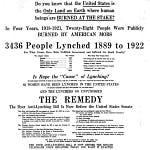On December 5th, a significant day in legal history, several pivotal events have shaped the legal landscape over the years–let’s do a speed run:
On this day in 1791, Wolfgang Amadeus Mozart, one of history's most influential composers, died in Vienna, Austria. His death led to numerous speculations and legal inquiries, reflecting the intersection of law and the arts. More specifically, Mozart's untimely demise at the age of 35 spawned various theories, ranging from poisoning to severe illness, fueling debates and investigations that persisted for centuries. The legal scrutiny surrounding his death underscored the complexities of inheritance and authorship rights during a time when the concepts of intellectual property were still in their infancy.
In the United States, December 5th, 1933, marked the end of Prohibition with the ratification of the 21st Amendment, repealing the 18th Amendment. This legal reversal was a response to widespread public discontent with Prohibition and its ineffective enforcement, highlighting the dynamic nature of law and public opinion.
In 1945, a mysterious event known as the disappearance of Flight 19 occurred. Five U.S. Navy bombers vanished over the Bermuda Triangle during a training flight, leading to extensive legal and investigative efforts to uncover the mystery, which remains unsolved.
December 5th, 1955, saw the beginning of the Montgomery Bus Boycott, a seminal event in the American Civil Rights Movement. This boycott, sparked by Rosa Parks' refusal to give up her seat to a white passenger, led to legal battles that ultimately resulted in the desegregation of public transportation in Montgomery, Alabama.
More recently, on December 5th, 2013, the world mourned the death of Nelson Mandela, South Africa's former president and an anti-apartheid icon. Mandela's life and legal work underscored the power of law as a tool for social justice and change.
These events, spanning across different centuries, central figures and continents, reflect the diverse and profound impact of legal developments and personalities on our global history. They serve as reminders of how law is intertwined with cultural, social, and political realms, shaping and being shaped by the human experience.
Consumer lawyers are advocating for the consolidation of approximately 20 lawsuits filed since August 2023 against pharmaceutical companies Novo Nordisk and Eli Lilly. These lawsuits, related to the GLP-1 receptor agonists drugs like Ozempic and Wegovy, allege that the companies failed to adequately warn consumers about severe side effects, including stomach and intestinal paralysis or obstruction. The motion for consolidation, led by attorneys from Morgan & Morgan, seeks to centralize the cases in the Western District of Louisiana, aiming to streamline the discovery process and avoid conflicting rulings from different judges.
Novo Nordisk, responding to the filings, stated that its drugs have been thoroughly studied and are continuously monitored for safety. Eli Lilly, another defendant in the lawsuits, has not yet responded. The companies have previously contested the claims, arguing that the side effects of these drugs are well-known and clearly stated on their labels.
Morgan & Morgan, handling a significant portion of these lawsuits and investigating over 10,000 related claims, argues that centralization in Louisiana would be beneficial. U.S. District Judge James Cain, who is currently overseeing the first lawsuit filed with these side effects claims, is also considered for presiding over the potential multidistrict litigation (MDL).
The U.S. Judicial Panel on Multidistrict Litigation (JPML) is expected to hold its next hearing on this matter in January. This legal development underscores the growing scrutiny and legal challenges faced by pharmaceutical companies regarding the safety and disclosure of side effects of their medications.
As Ozempic cases mount, consumer lawyers push to consolidate lawsuits | Reuters
A new report from the State Bar of California reveals significant disparities in bar exam pass rates and other metrics among different types of law schools in the state. The report found that graduates of the 18 California-accredited law schools, which are not accredited by the American Bar Association (ABA), had a pass rate of just 21% on the July 2022 bar exam. In contrast, graduates from ABA-accredited law schools in California had a 67% pass rate.
This discrepancy raises questions about the value and regulation of legal education in California. The report also highlighted the diversity and affordability of non-ABA-accredited schools. Students of color account for 56% of enrollment in California-accredited schools and 50% in unaccredited schools, compared to 46% in ABA-accredited schools.
Additionally, tuition costs are significantly lower at California-accredited and unaccredited schools. The average cost for a Juris Doctor degree is $174,233 at an ABA-accredited school, $75,348 at a California-accredited school, and $33,115 at an unaccredited school.
California's unique law school accreditation system allows graduates of California-accredited schools to take the bar exam only in California, while ABA-accredited school graduates can take the exam in any state. Graduates of unaccredited schools can also take the California Bar, but only after passing the state’s First Year Law Students Exam, or "baby bar."
The report also notes that California permits aspiring lawyers to study under a lawyer or judge without attending law school, although they must pass the baby bar, a path currently pursued by celebrity Kim Kardashian.
Attrition rates differ significantly among the school types, with an 8% rate at ABA-accredited schools, 42% at California-accredited schools, and 51% at unaccredited schools.
Overall, the report by the State Bar of California underscores the challenges and policy considerations regarding law school education, diversity, accessibility, and the likelihood of bar exam success in the state.
California law schools lacking ABA approval show 21% bar pass rate - state report | Reuters
The board appointed by Florida Governor Ron DeSantis to oversee Walt Disney's theme parks has accused the company of providing millions of dollars' worth of benefits to employees of a previous local board, likening these perks to bribes. The 80-page report prepared for DeSantis and the Florida legislature alleges that Disney treated district employees like its own by offering complimentary annual passes, steep discounts, and other benefits. This practice, according to the report, led district employees to prioritize Disney’s interests.
The Reedy Creek District, established in 1967 to support Walt Disney World’s development, enjoyed broad self-regulatory authority under Disney's control. The report claims that the old board was inverted to serve Disney, holding voting control and in need of reform. However, the current board does not accuse the previous board of criminal activity.
The Central Florida Oversight Board will soon vote on whether to accept this report, which has been criticized by a Disney spokesperson as "revisionist history" and lacking credibility. Disney has not directly addressed the report’s allegations, and the former board members were not immediately available for comment.
The report also states that Disney provided benefits to employees, supervisors, retirees, and vendors, including complimentary passes and discounts on various services. From 2018 to the present fiscal year, the district reportedly spent between $1.78 million to $2.54 million annually on these benefits, initially funded by Disney but later reimbursed using taxpayer dollars.
Additionally, the report highlights that former District Administrator John Classe charged about $166,000 to his district card over 15 months, with a significant portion on parties and celebrations. The unfolding dispute between Disney and Florida's government has led to lawsuits, with Disney suing Florida for allegedly weaponizing state government and the DeSantis-appointed board counter-suing over favorable deals to Disney.
DeSantis board accuses Disney of controlling previous one with gifts | Reuters
Former U.S. President Donald Trump is attempting to appeal a decision that reinstated gag orders in his ongoing New York civil fraud case. These gag orders, initially imposed by Justice Arthur Engoron on October 3, prevent Trump from publicly speaking about court staff. The orders were issued after Trump shared a social media post falsely claiming the judge's top law clerk was U.S. Senate Majority Leader Chuck Schumer's "girlfriend," leading to hundreds of threats against the court.
The gag orders were briefly paused on November 16 by an appeals court judge, but they were reinstated by a mid-level state appeals court last Thursday. Trump has already been fined $15,000 for violating the gag order twice, with Engoron warning of steeper penalties for future breaches, including possible imprisonment.
In the fraud case, Trump is accused of overstating his net worth by billions to deceive lenders and insurers, and the trial is now focused on damages after Engoron found Trump's financial statements fraudulent. Trump's lawyer, Clifford Robert, has requested permission from the Appellate Division to appeal the gag order's reinstatement to the state's highest court, the Court of Appeals. Robert argues that the orders infringe on Trump's First Amendment rights.
Meanwhile, New York State Attorney General Letitia James, who initiated the case, seeks $250 million in penalties and aims to ban Trump from New York state real estate business. Trump denies the allegations, claiming political bias by James, a Democrat.
In addition, Trump faces a similar gag order in a federal criminal case related to actions in the 2020 U.S. election. Overall, Trump is contending with four federal and state criminal indictments, to which he has pleaded not guilty.
Trump seeks to appeal reinstated gag orders in New York civil fraud case | Reuters













